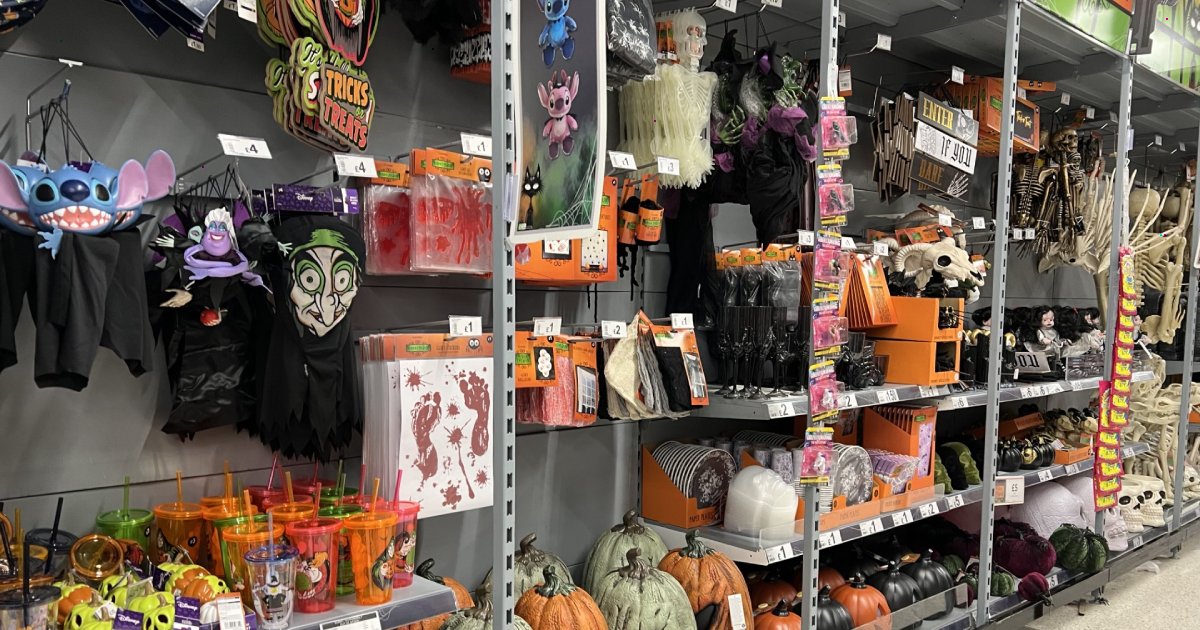U.K. Retailers Brace for Flat Seasonal Sales

By Mark Seavy
As the U.K. gears up for the holiday season, retailers are preparing for flat sales and bracing for major changes across the industry.
Many retailers, under pressure from tighter consumer spending in a sluggish economy, are responding to declining sales with promotions and addressing changing consumer behaviors with a focus on revamping their strategies.
In spite of these ongoing challenges, retail sales across the U.K. saw improvement in September. According to the British Retail Consortium (BRC), September saw the strongest retail sales growth since January and had the highest sales volume since March 2022.
To build on that growth, many stores have already launched robust Christmas displays in a bid to jumpstart holiday sales that were kicked off earlier this month with Amazon’s Prime Day promotion. And, with Halloween taking place later this month, an Asda store featured around 40 five-foot product displays. Overall, the luxury and off-price retailers we observed in London appeared to have steady customer traffic while mid-tier stores were less busy.
“The coming months are crucial for the economy as retailers enter the holiday sales,” Helen Dickinson CEO of the BRC, told Drapers Online.
The BRC, along with 70 retailers including Tesco, Marks & Spencer, and Ikea, is lobbying U.K. Chancellor Rachel Reeves for a 20% cut to business tax rates, warning that the property levy could force thousands of stores to be closed. The retailers are pushing the U.K. Treasury for a “retail rates corrector” on the levy, which is a property-based tax charged by local councils. According to the BRC, the cut would “level the playing field” with other businesses, including pubs, factories, and company offices.
“Retailers are holding their breath ahead of the Budget as they work out their investment strategies for the coming year,” Dickinson said. “Decisive action from the chancellor, such as introducing a 20% retail rates corrector, would help to drive investment and economic growth up and down the country.”
The push for a tax break comes as many U.K. retailers are revamping their businesses. In some cases that has meant a heavier reliance on private label goods, something that was evident at the John Lewis store we visited in London. The department store, which heavily promotes its three-year-old Anyday brand across apparel and housewares, was running a back-to-school program for university students featuring checklists and products affixed with QR codes. Some products on the checklists were pulled together for in-store displays.
The promotion came as John Lewis, which also has 34 department stores and owns the 329-store Waitrose grocery chain, earlier this month eliminated the CEO role just 18 months after creating it for the first time. Former CEO Nish Kankiwala was named a non-executive advisor to new Chairperson Jason Tarry, who is accelerating a turnaround plan. The reshuffling of executives is a “significant progression of the transformation, particularly over the past two years,” the retailer said in a statement.
Additionally, John Lewis affiliate Waitrose plans to invest £1 billion ($1.3 billion) over the next five years to open 100 new convenience stores across the U.K. The funding will also be used to refurbish existing locations.
Selfridges, meanwhile, sold a 40% stake to Saudi Arabia’s Public Investment Fund earlier this month, which bought out Sigma Group’s investment. The deal came amid a 20.6% decline in the value of its property to £638 million ($829.8 million). The investment includes Selfridges along with affiliates De Bijenkorf in the Netherlands as well as Brown Thomas and Arnotts in Ireland. Selfridges has about £1.7 billion ($2.2 billion) in loans secured by its properties that will mature in August 2025.
Other retailers are addressing these industry-wide concerns by expanding. Toy retailer The Entertainer last week completed its rollout of “Toy Box” in-store shops at 850 Tesco locations in the U.K. and Ireland. The toy chain is opening a new distribution center for the locations, the deployment of which was completed during the past eight months. The Entertainer is part of the Teal Group, which also owns Addo Play and baby and toddler products retailer Early Learning Centre.
But further expansion in the region could prove difficult for retailers moving forward.
“In the face of weak consumer confidence and the continued high burden of business rates, retailers’ capacity for further investment is limited,” Dickinson said.




